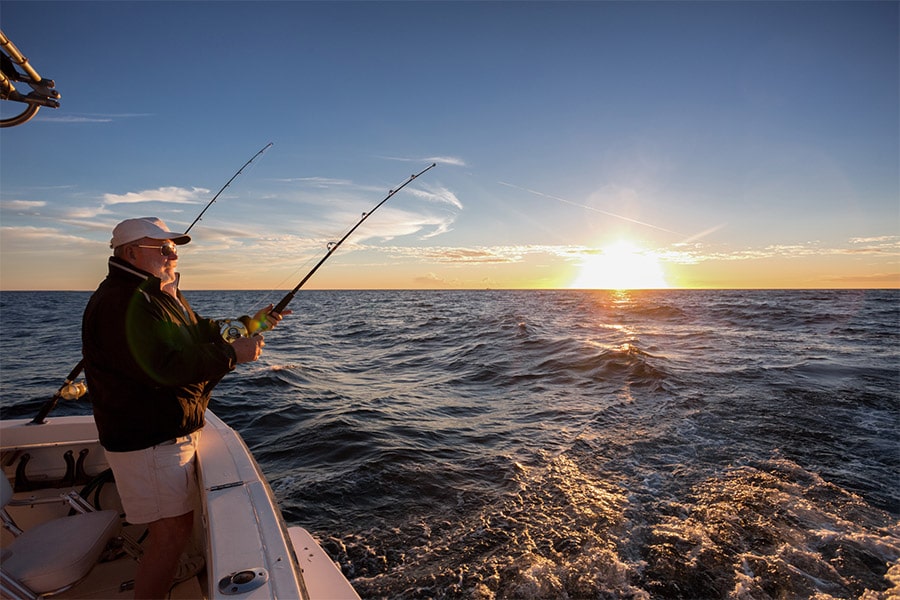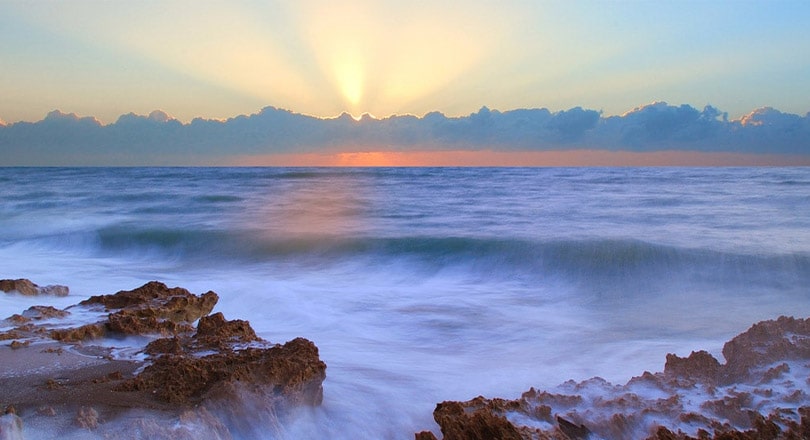
Just south of the St. Lucie Inlet and six miles due east, fishermen will find an abundance of marine life teeming through the waters of Six Mile Reef. These reef structures and natural coral ledges, located in 70 to 80 feet of water, are a hotspot for grouper, as well as gag. Anglers bottom fishing at these depths will also be pleasantly surprised to find jumbo mutton and mangrove snapper. Six Mile Reef is one of Stuart’s many reefs. Just 4 miles offshore, Bull Shark Barge and Sand Pile are home to large populations of snapper, grouper, barracuda, and cobia. Further out, Loran Tower Reef, just 12 miles offshore, and Bethel Shoals, located 15 miles offshore, are both known for their abundant snapper, grouper, and kingfish populations.

